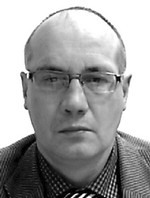Need for new research provisions for computer sports
Фотографии:
ˑ:
Associate Professor, PhD M.A. Novoselov1
Associate Professor, PhD E.N. Skarzhinskaya2
1Russian State University of Physical Culture, Sport, Youth and Tourism (GTSOLIFK), Moscow
2Moscow State Academy of Physical Culture, Malakhovka, Moscow region
The study considers challenges of the modern theoretical and practical provisions for the modern computer sports and identifies a few barriers for the efforts to improve the theoretical and practical provisions for the computer sports. Presently the national computer sports are in need of due theoretical developments and regulatory provisions for the coaching, instructing and refereeing services provided in the precompetitive and competitive process on a remote bases; whereas a few other sectors of the national economy including education, health system, culture etc. are now regulated by the relevant provisions to facilitate the relevant electronic communication. The existing Federal Standard regulating training process in the subject sport disciplines fails to cater for some specifics of the modern intellectual sports, with the trainees’ progress and qualification requirements (including the ones applied for their promotion to the higher-level training groups) being based on the irrelevant general and special physical fitness rates. These barriers, in our opinion, need to be removed as soon as possible.
Keywords: gnoseology, computer sports, cyber-sports, electronic sport, e-sport, informational community, sport training, education.
References
- Gorbachenko A.F., Skarzhinskaya E.N. Professii buduschego: kompyuternyiy sport kak industriya informatsionnogo obschestva [Professions of the future: computer sports as information society industry]. Mater. nauch.-prakt. konf. s mezhdunar. uchastiem «Upravlenie v sfere nauki, obrazovaniya i tehnologicheskogo razvitiya" [Proc. res.-pract. conf. with intern. participation "Management in Science, Education and Technological Development"]. Moscow: MPU publ., 2016, pp. 115-119.
- Zamoshchenko V.A., Senchenko V.V. Kibersport v usloviyah vyisshey shkolyi. Seriya: Pedagogika i psihologiya [Cybersport in higher education. Series: Pedagogics and Psychology]. Yalta: RIE HPA publ., 2016, pp. 192-198
- Matveyev L.P. Teoriya fizicheskogo vospitaniya i obschaya teoriya fizicheskoy kulturyi: sostoyanie i perspektivyi [Theory of physical education the general theory of physical culture: state and prospects]. Moscow: RSUPCSYT publ., 2006, p. 13.
- Pankina V.V., Khadieva R.T. Kibersport kak fenomen XXI veka. Fizicheskaya kultura. Sport. Turizm. Dvigatelnaya rekreatsiya [Cybersport as a phenomenon of the XXI century. Physical Education. Sport. Tourism. Physical Recreation]. Chelyabinsk: ChSU, vol. 1, no. 3, 2016, pp. 34- 39
- Strelnikova G.V., Strelnikova I.V., Yankin E.L. Osobennosti sensomotornoy i kognitivnoy sfer kibersportsmenov, vyistupayuschih v raznyih distsiplinah [Features of sensorimotor and cognitive spheres of cyber athletes performing in different disciplines]. Nauka i sport: sovremennye tendentsii. Kazan, 2016, no. 3 (vol. 12), pp. 64-69.
- Federalny zakon «O fizicheskoy kulture i sporte v Rossiyskoy Federatsii» ot 04.12.2007 # 329-FZ (st. 2) [Federal Law "On Physical Culture and Sports in the Russian Federation" 04.12.2007 No. 329-FL (Article 2).].
- Federalny standart sportivnoy podgotovki po vidu sporta shahmaty [Federal standard of chess sports training]. Available at: http://www.minsport.gov.ru/2015/SrandartShah.pdf (Accessed: Nov., 14 2016)



 Журнал "THEORY AND PRACTICE
Журнал "THEORY AND PRACTICE